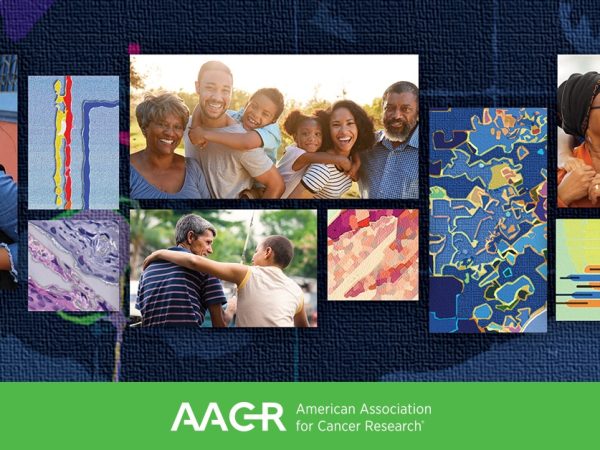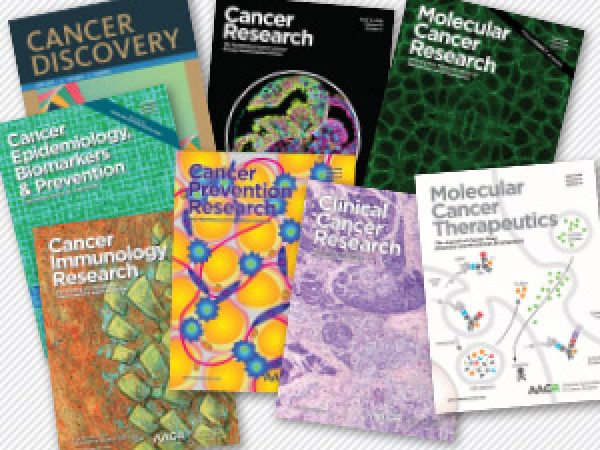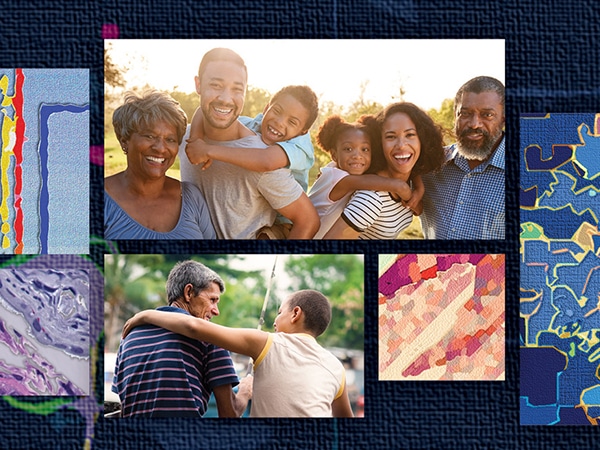Party with a Purpose Supports Geriatric Oncology Research
The risk of cancer increases as we age, but so does the risk of other issues, including additional health conditions and societal challenges. Given the impact these factors can have on a patient’s treatment and quality of life, researchers who study geriatric oncology—that is, cancer in older patients—are striving to understand and address the unique challenges that come with treating this subset of patients.
Geriatric oncology research will be the beneficiary of this year’s Party with a Purpose, an annual fundraising gala hosted by the Friends of the American Association for Cancer Research (AACR) Foundation. Each year, the group honors a humanitarian awardee and two scientific awardees, and the funds generated by the event are awarded to the two scientists to support their research.
This year’s scientific awardees are being recognized for their impactful work to improve oncology care delivery for older patients:
- The Scientific Achievement Honoree is Andrew Chapman, DO, director of the Sidney Kimmel Comprehensive Cancer Center at Thomas Jefferson University and Jefferson Health.
- The Early Career Investigator Honoree, nominated by Chapman, is Kuang-Yi Wen, PhD, an associate professor and behavioral scientist within the Division of Population Science in the Department of Medical Oncology at Thomas Jefferson University.
We spoke with Chapman and Wen to learn about their current work and how the support from Party with a Purpose will help advance their research moving forward. (Check out an earlier blog post for an interview with this year’s Humanitarian Awardee, former Philadelphia Mayor Michael Nutter.)
What is your research focus, and what drew you to this field?
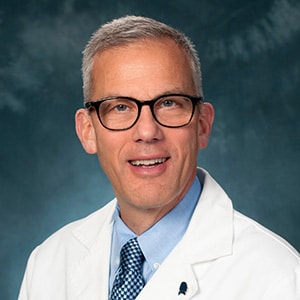
Chapman: I conduct health services research, with a focus on developing improved models of care delivery for older adults with cancer. My interest in this field came from the realization many years ago of just how vulnerable older adults were when it came to care delivery. As I started to delve into the differences between older and younger patients with cancer, I became more and more interested in developing ways to address the specific needs of older patients to improve the quality of their care delivery, as well as their overall quality of life as they’re going through cancer treatment.
Wen: My research focuses on improving cancer care and access to screening and treatment for marginalized patient populations, such as racial/ethnic minorities and older adults. My motivation comes from my mother, who is a survivor of breast cancer and just completed a five-year course of hormone therapy. I’ve seen firsthand how the side effects of treatment can affect daily life and influence decisions surrounding treatment adherence. It is so important to support patients as they navigate cancer treatment to avoid treatment discontinuation. As part of my research, I’ve developed a text messaging intervention to remind patients and survivors to take their medication and to teach them about interventions to manage their side effects.
How does the management of geriatric cancers differ from cancers in younger patients?
Chapman: Older adults are more vulnerable on many different levels. Their treatment tends to be more complex than that of younger patients because they are more likely to already have other medical conditions and be on medications to manage those conditions. When you add in a cancer therapeutic, you now have the risk of complex drug interactions and increased toxicity.
Then, there are the physical and logistical vulnerabilities that come with the aging process. Vision loss, hearing loss, and cognitive decline can make it difficult for patients to understand consent forms and explanations of their treatment plan. They may be more susceptible to treatment side effects like dizziness or pneumonia, and the side effects may take longer to resolve or lead to other issues, such as injury from falls.
A lack of transportation to and from appointments can make older patients more likely to skip treatments. Financial toxicity is also one of the issues that older adults are particularly vulnerable to. Many older adults are on fixed incomes, and cancer treatment can be very expensive.
The other thing we have to consider is how to avoid overtreating or undertreating patients. Overtreatment can happen if patients receive therapies that they may not be able to cognitively or physically tolerate, and undertreatment can happen when patients are not given therapy that they would otherwise benefit from because it’s assumed they are too old to tolerate it. Since a person’s chronologic age doesn’t always tell the full story, we have developed a frailty assessment to evaluate each patient’s physiologic health and tolerance for treatment.
What are some of the important areas to be addressed in the field of geriatric oncology right now?
Chapman: We are facing what we’ve termed a “silver oncologic tsunami,” an influx of older patients who will have a specific set of special needs. Therefore, one area of active research is how to meet the needs of this growing patient population through education and caregiver support. This involves understanding how to more seamlessly perform patient evaluations, get the information into the hands of the patients and providers, and have shared decision-making to ensure patients are getting the type of care that is meaningful to them.
Another area of research is improving survivorship for older adults. Fortunately, more patients are living longer due to advances in cancer therapeutics. The onus is on us to assure that we are helping these older survivors maintain their independence and quality of life in survivorship. We know that virtually every cancer therapy can accelerate the aging process. It is important to understand how to address treatment-induced accelerated aging, whether that’s through lifestyle changes like exercise and diet or the emerging field of senolytics, which are therapeutics that target the senescent cells—these are the cells that are causing inflammation, which is driving the aging process in cancer patients.
Researchers are also interested in better understanding the biological mechanisms of accelerated aging and developing ways to document a patient’s physiologic age (as opposed to their chronologic age). This could involve utilizing biomarkers, epigenetic clocks, and other molecular signatures that basic researchers are learning a great deal about. Hopefully, we can one day have a series of blood tests to measure someone’s physiologic age, which would enable us to better match therapy to that patient.
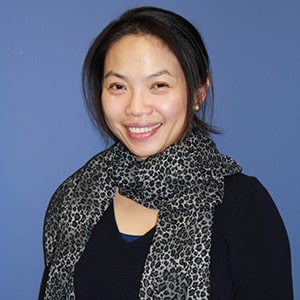
Wen: One direction is to develop ways to guide decisions about treatment for older patients. We shouldn’t be taking a one-size-fits-all approach, so I think the frailty assessment we’ve developed will provide guidance about the types of therapies each patient may or may not be able to tolerate.
Another priority is to better educate patients about lifestyle interventions that can mitigate some of the side effects they experience from treatment. These include a variety of integrative medicine approaches, such as dietary modifications, tai chi, and even acupuncture.
Lastly, we need to address the immense burden that falls on caregivers, who are so important, especially for older patients. By easing some of the stress on caregivers, we will indirectly improve the experience and outcomes for the patients as well.
Can you talk about Dr. Wen and why you selected her to receive the Early Career Investigator research grant?
Chapman: Dr. Wen is an incredibly smart and productive scientist who is driving the field forward. As a population scientist, she is working to develop new strategies to communicate and connect with patients to enhance information exchange and care delivery for a range of populations. Specifically for the older patient population, we have collaborated on a number of projects, such as developing improved and readily accessible methods to screen these patients for frailty.
How do financial awards like the Party with a Purpose award facilitate your work in geriatric oncology?
Chapman: While there is federal funding available for this kind of work, it’s no secret how competitive it can be. As a result, geriatric oncology research has been greatly underfunded by federal agencies as well as by the pharmaceutical industry, which has historically favored disease-specific research and targeted therapy development.
Fortunately, we’re starting to see more support from the philanthropic sector—such as this award from Party with a Purpose—as awareness grows about the impact of cancer on older adults. These funds enable us to develop the best models of care delivery to get patients the care that is relevant to them, so kudos to AACR for paying attention to the importance of the aging and cancer interface.
Wen: The funds from this award will support a pilot study to compare the ability of different integrative medicine approaches to mitigate chemotherapy-induced neuropathy in older patients. I am hoping the results from this pilot study will allow us to secure a larger grant from the National Institutes of Health to conduct a randomized clinical trial across multiple institutions to demonstrate the utility of integrative medicine. Hopefully, studies like this will lead to policy change and expanded insurance coverage for these types of supplemental interventions for older patients. I am truly grateful to have been selected for this award.
Join the Friends of the AACR Foundation for the 21st Annual Party with a Purpose gala on October 27, 2024. Tickets and tables are available at various sponsorship levels.

